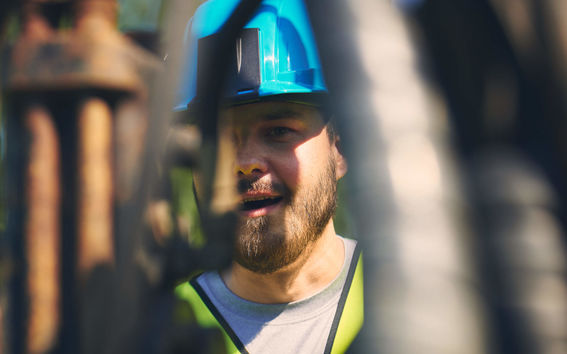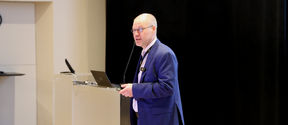Several suggestions for more sustainable operating models
The study offers several useful insights that can contribute to a more sustainable and efficient future in the construction sector. For example, by observing workers in real-time, Görsch was able to identify key areas where, with some effort, more sustainable operating models could be achieved.
‘First of all, staying on top of different situations and using digital information management would produce more tailored and efficient methods for planning and controlling construction projects’, he says.
One example Görsch mentions is challenges related to moving people and materials around worksites, which could be solved by tracking such movement with different sensors, point clouds and mobile robot imaging.
‘The results show that up to 80% of work on construction sites is unproductive. Recurring bottlenecks that interrupt work can be easily prevented with tracking data. When challenges are identified, it increases employees’ self-well-being, leads to smarter project management, and brings more opportunities for workers to influence the work directly’, Görsch says.
Görsch’s ideas are supported by his thesis Supervisor Professor Olli Seppänen, who leads the Building 2030 consortium.
‘In the future, research in the construction sector will definitely have to make more use of the opportunities offered by automated data collection to make work more efficient and to find more sustainable operating models.’
Further information:
Christopher Görsch
Senior Scientist, VTT
christopher.gorsch@vtt.fi
tel. +358 50 4118 924
Olli Seppänen
Professor, Aalto University
olli.seppanen@aalto.fi
tel. +358 50 3680 412
Did you know that Building 2030 is a consortium of Aalto University and 21 companies that envisages, studies and promotes a better future of construction.
Read more: https://www.aalto.fi/en/building-2030














